A Dundee dad has opened up about his struggle to re-enter the working world after being unemployed for the last four years.
Ewan Sutherland, 44, is a single father and carer to his two disabled sons Jacob and Leo, aged 15 and 17.
He was made redundant in 2020 after working full-time as a food and beverage administrator at the Apex Hotel in Dundee for 18 years.
Now, four years on, Ewan is finding it near-impossible to re-enter employment.
“At the time I was home-schooling the boys and my youngest was making the transition from primary school to high school, ” he explains.
“Since then, I’ve been volunteering at a charity which helps him, doing admin work.
“But I’ve really struggled to get interviews, never mind progress past the interview stage.”
After having worked full time for 25 years prior to being made redundant, Ewan says it’s “soul destroying” to be unable to find anything he is capable of doing.
“I suffer from my own health issues, I have Type 2 diabetes,” he explains. “And with looking after the boys, I’m not able to take on the hours that come with, say, hospitality roles.
“So I’m really looking for something office based, in admin. But the jobs don’t come up often, and when they do, there are hundreds of applicants.”
And Ewan is far from the only man in the city in this position.
Dundee men struggling more than women?
Dundee has 25% more unemployed men than women, according to new research.
A 2024 study from Tax Bite showed that Dundee has 2,520 men registered as unemployed in the city compared to just 1,500 women.
That’s the highest gender unemployment gap of any area in Scotland, and the second highest in the UK, beaten only by Liverpool.
So why are men in Dundee having so much trouble finding work compared to their female counterparts?
According to Dundee-based recruitment manager Jonathan Whelan, who runs The Recruitment Co in the city’s west end, there’s a perfect storm of real life factors behind the stark figures.
The first is that there is simply a shortage of roles in the area’s traditionally male-dominated industries, such as construction and manufacturing.
“If I put a job up today for one warehouse operative, I’d probably get about 250 applications within 48 hours,” says Jonathan.
Higher cost of living equals fewer jobs
The reasons for this job shortage, he explains, are that due to Brexit and the cost of living crisis, business’ running and material costs have risen dramatically.
That in turn means companies are having to keep staff numbers low in order to stay afloat.
And the resulting restructures and redundancies are leaving mid-career men unexpectedly unemployed .
“A lot of the men I see are ones who have left school and immediately gone to work in the manufacturing industry, the likes of your Michelins and such,” explains Jonathan.
“They’re unskilled outside of that industry. But now that industry isn’t as busy, and they’re facing unemployment.
“But if you’re an employer, and you’re faced with a skilled guy and an unskilled guy, you’re going to take the skilled one.”
‘Lost generation’ of men in middle age?
Ewan reckons he’s part of this lost generation of men who are finding themselves out of work years or decades after their formal education has ended, meaning their qualifications have become irrelevant or outdated.
“Quite a lot of the time when I go to the Jobcentre, I’ll notice that the people there aren’t young,” he observes.
“I have a National Certificate in marketing and a Diploma in nutrition and health – but that’s from 24 years ago.
“I’ve done no formal qualifications since then, and employment has changed, even just with the advances in digital technologies.”
‘Female’ roles are ‘not for me’ say men
Another factor in the city’s high level of male unemployment, Jonathan says, is that lingering preconceptions of ‘male roles’ versus ‘female roles’ may be holding men in Dundee back from gainful employment.
“I do think there is an attitude which comes predominantly from males of, ‘I’m not doing care’ or ‘I’m not doing cleaning’,” he explains.
“You also find that it can be quite stereotypical where males are not interested in part-time opportunities. They only want full time hours, which for a lot of industries you’ll only get during peak periods.”
A spokesperson from Dundee City Council’s Adult Employability service agreed, commenting: “There are several specific challenges facing men who are trying to find employment.
“These include issues around mindset, where many of the job opportunities can be perceived by men as to be ‘not for me’ like in the care sector or as teaching assistants.”
Public transport ‘unreliable’ for workers
But it’s not just the job market itself which is contributing the city’s high proportion of unemployed men.
Recruiter Jonathan says that years of strain on vital public services such as healthcare and transport have had a ‘knock-on effect’ on people’s ability to work, and get to work.
“What you will find with a lot of the manufacturing and industrial type roles here is that many are located outside of Dundee city,” he explains.
“So if you haven’t got a car, you can’t get there. But a car is too expensive to run, between insurance and fuel and everything, without a wage.
“And getting to these places is really difficult. When they’re not on your doorstep, people are relying on public transport. And unfortunately it’s just not reliable.”
NHS strain has ‘knock-on effect’
Access to workplaces isn’t just about getting there and back either, Jonathan points out. It’s about being fit to work in the first place.
“We have a lot of candidates, a lot of men, who want to work but are struggling to access proper healthcare,” he explains.
“They may be waiting on operations or physio, or rehab for injuries.
“Basic things like a broken leg, which might have you off your feet for seven weeks, will have people out of work for three months or more because they can’t get their proper rehab.
“It all has such a knock-on effect. And it affects manual workers more than perhaps office-based roles, which means it does tend to affect a lot of men.
“The NHS is under huge strain, so I don’t know what the answer is.”
Injury holds Lochee man Ross back
Indeed, health is the number one reason why Lochee man Ross Mitchell has been long-term unemployed for the past two years.
“I was a catering assistant with Tayside Contracts,” says Ross, also 44, who attends the Fair Star Scotland scheme in Dundee to support his job search.
“But a few years ago, I fell and broke my knee, so I’ve got difficulty going down stairs.
“That comes in the way of a lot of jobs. I’m finally starting my physio next week, so I’m hoping things get a bit better.”
Jonathan also observes that the compounding factors of isolation, financial worries and lowered confidence mean that men’s mental ill health is becoming a symptom and a consequence of continuing unemployment.
“I think employers are losing out on talent by not offering flexibility, hybrid working and flexible hours,” he says.
“Because anxiety and mental ill health among men in particular is becoming a silent killer.”
Volunteering helps with mental health
Indeed, as a result of his injury, Ross says he’s suffered from mental health issues including anxiety, which has become another hurdle to re-entering the workforce.
But four days a week, he volunteers at the Roseangle Kitchen cafe which he says helps his confidence.
For Ewan, not finding a job would mean that when his sons turn 18 and his benefits are cut accordingly, he faces losing the Coldside home where he has raised his family.
And he worries about what the current job market in Dundee means for his youngest son’s future, as a man in the city with Autism Spectrum Disorder (ASD).
“I don’t know what’s there for him when he leaves school,” admits Ewan. “I really worry about it all, and about him.”
Both Ross and Ewan recommend that Dundee men who find themselves unemployed seek out a volunteer position to help them cope.
“It helps keep you active mentally and physically,” says Ewan. “And it gives you the experience and the confidence to do something else when it comes along.”
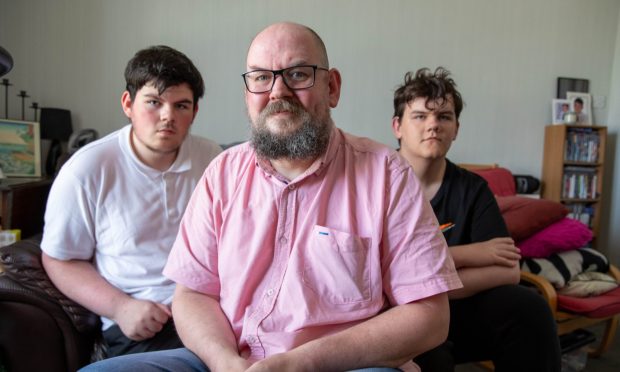
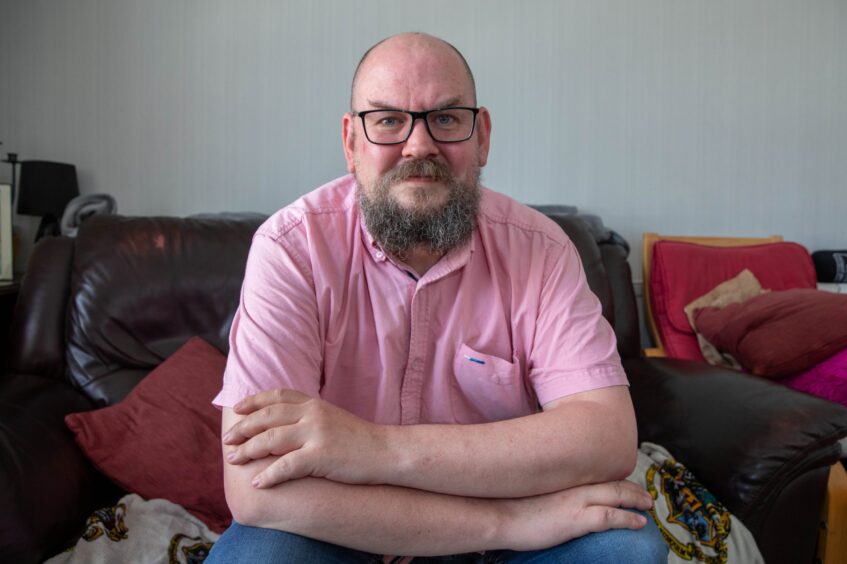

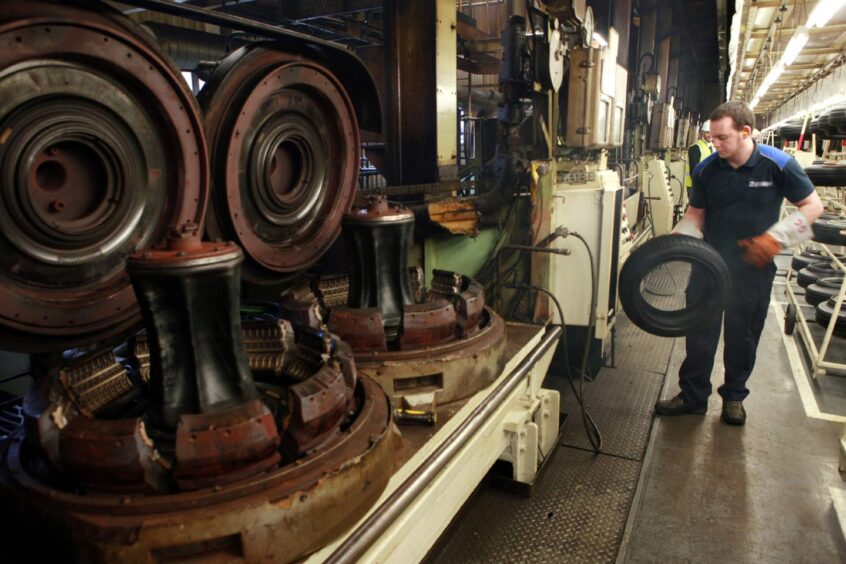
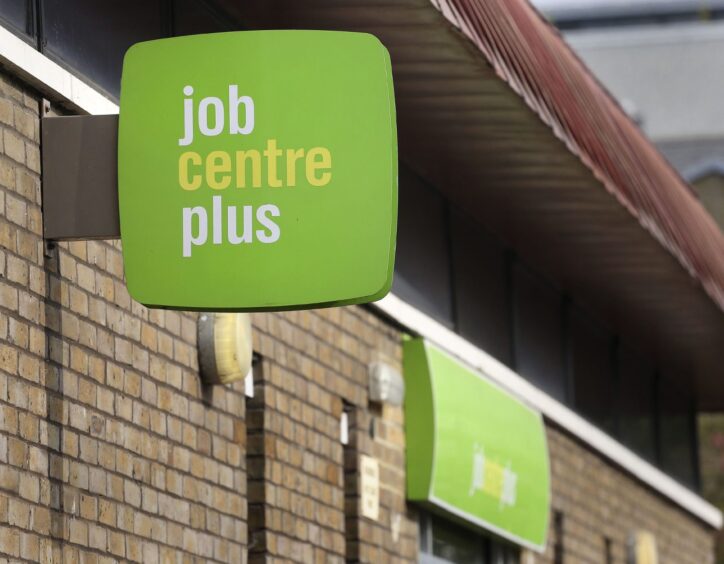
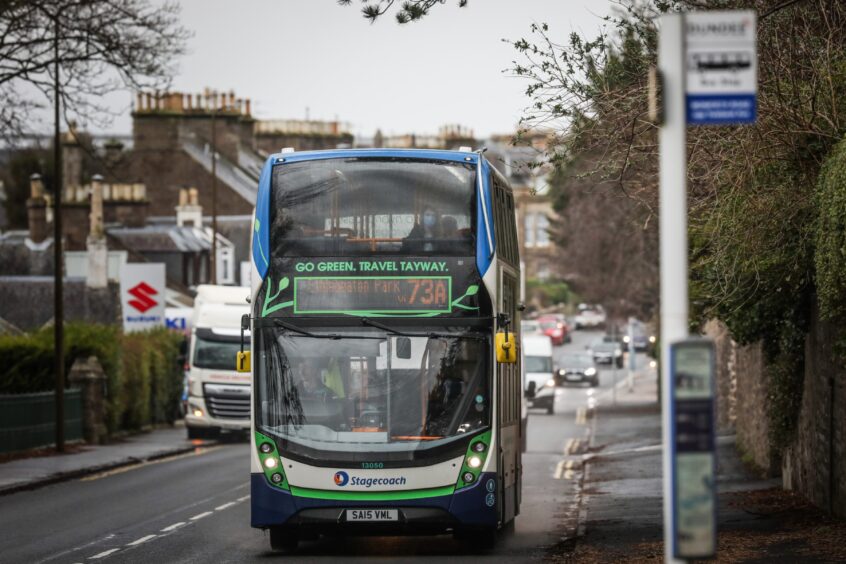
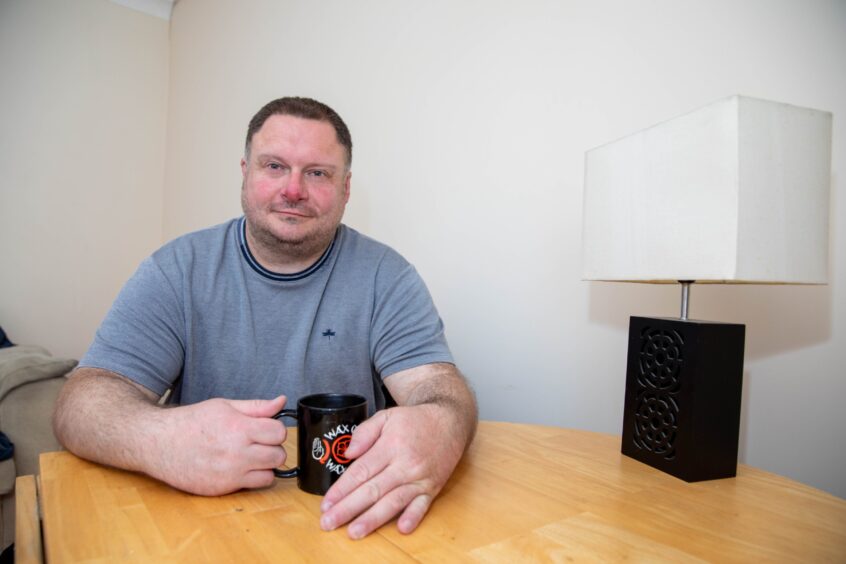
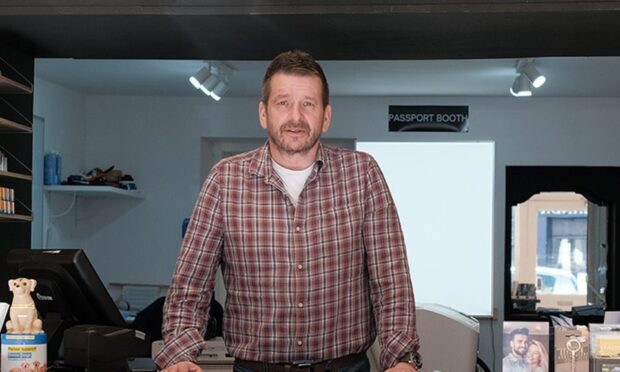
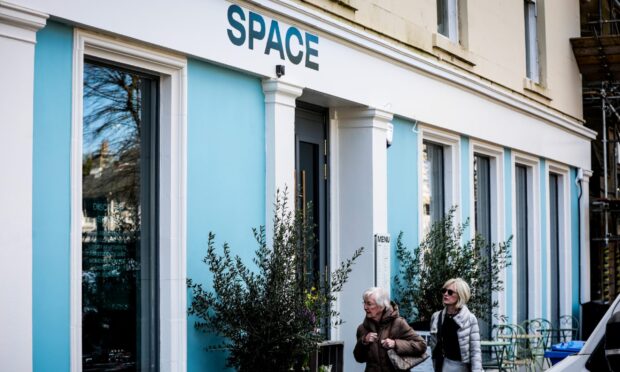







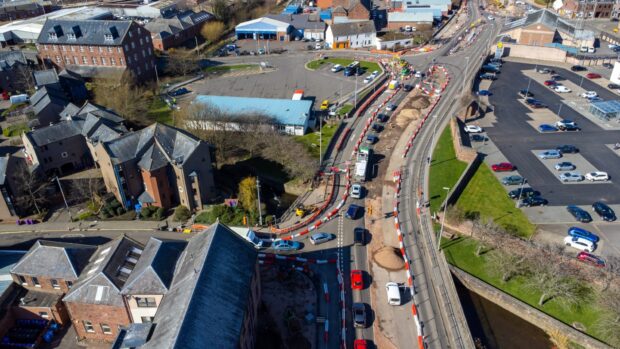
Conversation